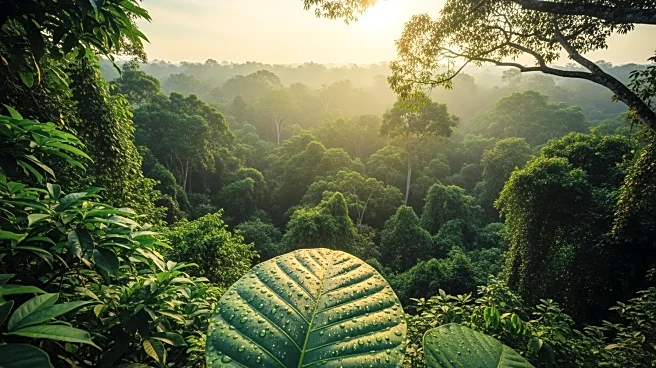What's Happening?
Virgilio Viana, a prominent figure in Amazon conservation, has expressed concerns about the ecological and governance challenges facing the region. Viana, who leads the Foundation for Amazon Sustainability, highlights the melting of glaciers and shifting
forest patterns due to prolonged dry seasons as critical issues. He also points to the growing influence of organized crime, which threatens governance in some areas. Despite these challenges, Viana remains optimistic about the future, envisioning an Amazon with zero deforestation and restored landscapes. His organization has launched initiatives like the 'Hope Boat' to promote climate justice and adaptation plans, requiring significant financial support to achieve these goals.
Why It's Important?
The Amazon rainforest is crucial for global biodiversity and climate regulation, making its conservation vital for environmental sustainability. Viana's efforts to involve local communities in conservation highlight the importance of grassroots participation in environmental protection. The challenges posed by organized crime and ecological changes underscore the need for robust governance and international support. Successful conservation could prevent further ecological degradation and contribute to global climate goals, benefiting both local communities and the international community.
What's Next?
Viana's vision for the Amazon includes stronger local governance and international backing for proven conservation solutions. The Foundation for Amazon Sustainability plans to continue its community-driven initiatives, seeking approximately $4 billion in funding. The success of these efforts will depend on collaboration between government, civil society, and local communities. The upcoming COP30 conference may provide a platform for further discussions and commitments to support Amazon conservation.
Beyond the Headlines
The involvement of local communities in Amazon conservation reflects broader trends in environmental governance, emphasizing the role of indigenous and local knowledge in sustainable development. Viana's approach challenges traditional conservation models, advocating for a more inclusive and participatory framework. This shift could influence global conservation strategies, promoting equity and justice in environmental policy.

















